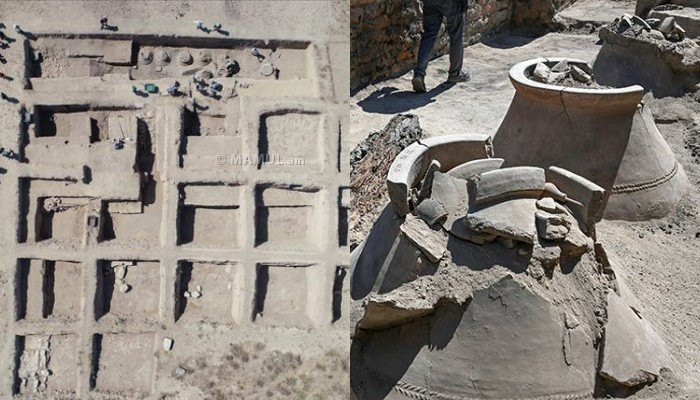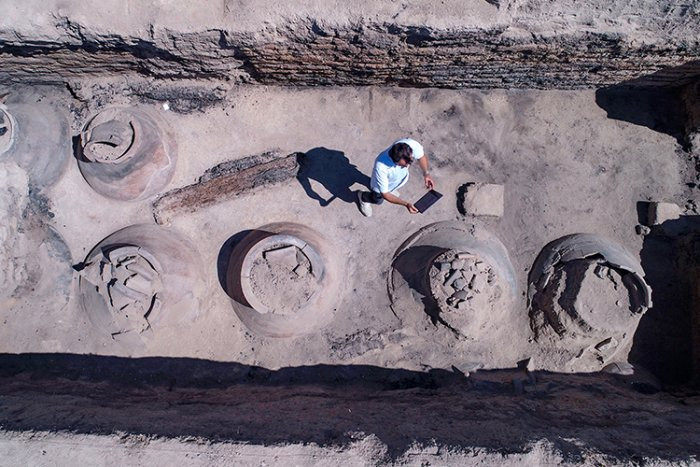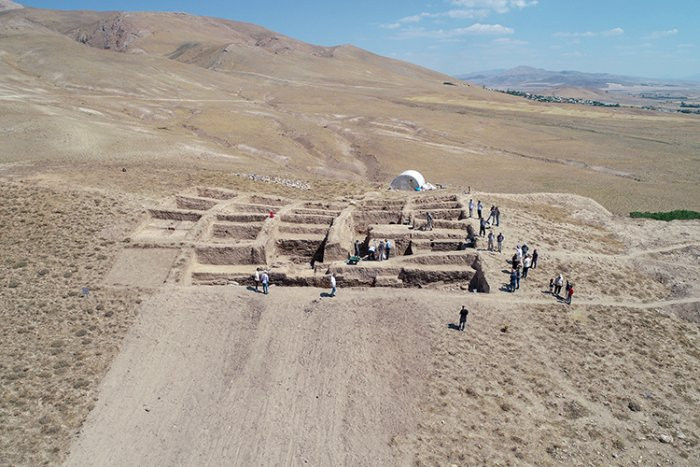What Are The Monumental Uratrian-Era Structures Unearthed At Garibin Tepe In Van?
 18278 Sunday, 10 September, 2023, 21:24 A group of impressive monumental ancient structures have been unearthed by archaeologists excavating at Garibin Tepe in Van, Turkey. Scientists say the large building complex is from the Urartian period. At present, the purpose of the ancient buildings remains unclear. Garibin Tepe is an interesting archaeological site located not far from the important Ayanis castle, an Urartian site that dates to the 7th century B.C. The area was discovered when treasure hunters carried out illegal excavations last year. Archaeologists have been investigating the region ever since and can confirm the site stood on the main road that joined the capital of Urartu, Van Fortress, with the Muradiye Plain and the Ararat Valley. Scientists said they constantly come across new finds during the work carried out in the field. Unfortunately, this valuable ancient historical site was destroyed due to illegal excavations, so obviously, the researchers must do whatever they can to save artifacts and ancient ruins that are left. We haven't come across a defensive wall yet. On the contrary, architecture with monumental and very special engravings welcomed us. We scanned the area with georadar. We do not know its exact function, but we are faced with a monumental building group with religious and royal dimensions. We have found 13 large pithos so far. We haven't opened them all yet. It is estimated that these pits were used to store grain or water," Mehmet Isikli, the team leader of the scientists who carried out the excavations, told Anadolu Agency (AA). What Are The Monumental Uratrian-Era Structures Unearthed At Garibin Tepe In Van? At present, the purpose of the ancient buildings remains unclear. Garibin Tepe is an interesting archaeological site located not far from the important Ayanis castle, an Urartian site that dates to the 7th century B.C. The area was discovered when treasure hunters carried out illegal excavations last year. Archaeologists have been investigating the region ever since and can confirm the site stood on the main road that joined the capital of Urartu, Van Fortress, with the Muradiye Plain and the Ararat Valley. We haven't come across a defensive wall yet. On the contrary, architecture with monumental and very special engravings welcomed us. We scanned the area with georadar. We do not know its exact function, but we are faced with a monumental building group with religious and royal dimensions. Scientists will continue excavation and preservation works simultaneously. It is a significant historical site that must be preserved for future generations.     |

«Himches gidacal». Nairyan vocal Ensemble
43126.02.2026, 22:33
Head of France's Versailles Palace to take over Louvre
112725.02.2026, 14:55
Henry VIII's love token secured by British Museum after centuries lost
497811.02.2026, 01:01
Netherlands returns 3,500-year-old looted sculpture to Egypt (video)
532308.02.2026, 19:12
Fifty-year restoration of Sainte-Chapelle's monumental stained glass inches closer to completion (photo)
397004.02.2026, 22:57
First lady’s film ‘Melania’ racks up biggest opening for a documentary in a decade
783701.02.2026, 23:32
BAFTA 2026 nominations
921927.01.2026, 19:38
2026 Oscar Nominations: See the Full List
960123.01.2026, 00:33
